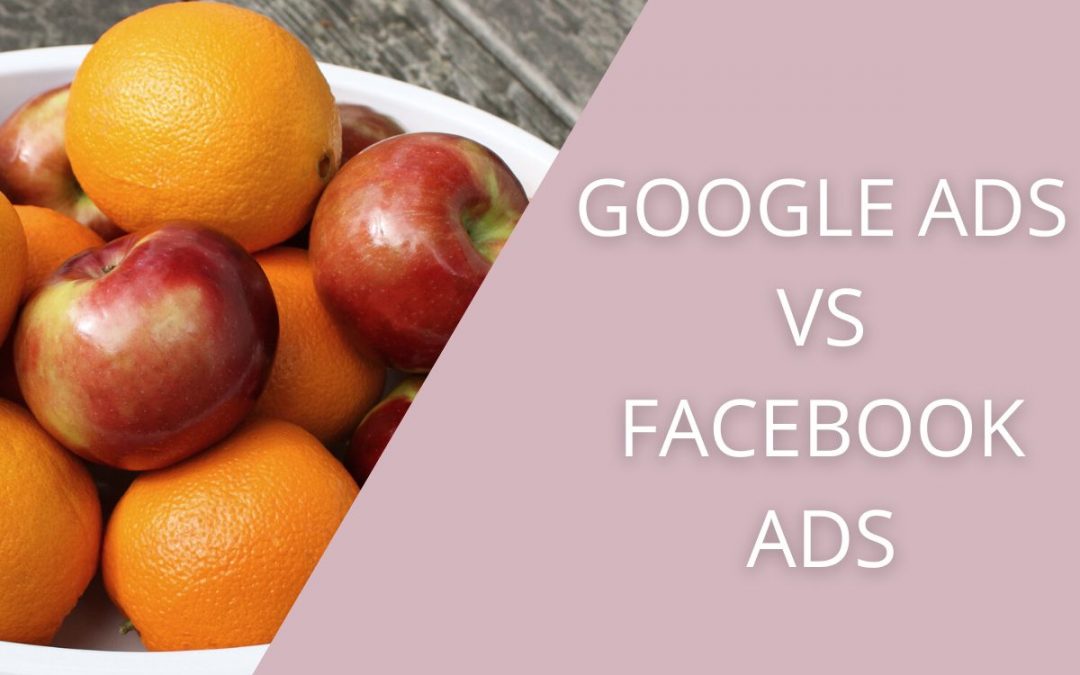Just as a business shouldn’t be on all available social media platforms, neither should a business be using all advertising platforms just because they can. With careful consideration and thought you most certainly can use more than one platform – in fact planning, coordinating and re-targeting with Meta Ads (Facebook and Instagram) and Googles Ads is an excellent strategy as they are both powerful advertising platforms, but they work in different ways. Google Ads uses a pay-per-click model, meaning you only pay when someone clicks on your ad. Facebook Ads, on the other hand, operates on a bidding system and charges based on impressions.
However, before you do make a decision, think about what is best for your business, who is your audience, what is your budget and what outcomes are you looking for.
Audience
Google Ads are shown to users on Google search (and its partner websites), while Facebook Ads are shown to users on the Facebook & Instagram platforms and its associated apps. This means that the audience you reach with each platform is different. Think about where your audience hangs out – Facebook, Instagram, Snapchat, YouTube or LinkedIn.
Targeting
Both platforms offer a range of targeting options, but Facebook’s options tend to be more comprehensive, allowing you to target users based on factors such as age, location, interests, and behaviours. Google Ads targeting is largely based on keywords, which means you can target users who are searching for specific terms. You can also exclude certain search terms so that you can be relevant to your audience. Both platforms use remarketing options.
Cost
The cost of advertising on Google and Facebook can vary widely, but Google Ads tend to be more expensive due to the higher value of search traffic. Facebook will spend your daily/lifetime budget but Google will only spend it if someone clicks on a relevant keyword. However, that keyword may be 60p per click or £3 per click depending on the industry. So unless you have a healthy budget Google Ads may not be for you.
Ad formats
Both platforms offer a variety of ad formats, but Facebook’s ad formats tend to be more visually oriented, while Google’s ad formats are more text-based, apart from Google Shopping Campaigns.
Measurement and Reporting
Both platforms provide detailed tracking and reporting tools, but Google Ads tend to offer more comprehensive and granular data, allowing you to measure the effectiveness of your campaigns more accurately. Data is so valuable in determining the direction of your campaigns and what’s working in your business.
What ad questions would you like to ask?
If you’d like to dicuss anything further, then why not get in touch and we can have a chat.

